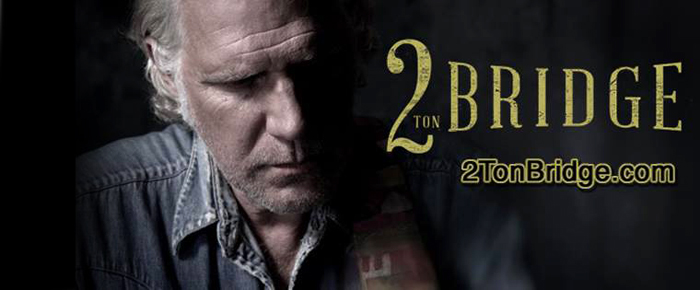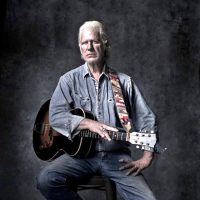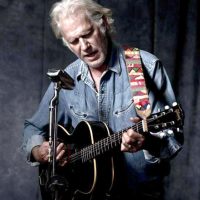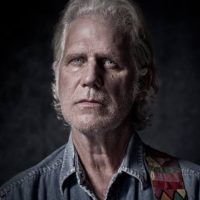
By Eleni P. Austin
The birthplace of Country-Rock isn’t Nashville or New York. It all happened in Los Angeles almost at the same time, the separate inspiration of two transplanted Angelenos and one native son.
Gram Parsons had grown up in Winter Haven, Florida the scion of wealthy citrus growers. Mike Nesmith was born in Houston and raised in Dallas, Texas. Rick Nelson came from show business royalty, the youngest son of performers, Ozzy and Harriet Nelson. Since 1948, Rick and his brother David had been playing versions of themselves on radio and television in “The Adventures Of Ozzie & Harriet.”
Nelson had musical aspirations and made his singing debut the “Ozzie & Harriet” show. That it was the height of nepotism seemed beside the point; Rick Nelson was a talented musician and pioneered the West Coast Rockabilly sound of the late ‘50s. Trapped in teen-idol purgatory, Nelson’s popularity had ebbed by the mid ‘60s.
By the mid ‘60s, Gram, Mike and Rick were all trying to further their music careers in Los Angeles. Separately, each of them were as inspired by Merle Haggard, Buck Owens and Bob Dylan, as the Beatles and the Stones.
The music each created in that nascent period, (Gram Parsons dubbed it “Cosmic American Music,”) was the first to incorporate pedal steel and fiddle into a Rock & Roll context. Gram Parsons did it with his International Submarine Band, then as a member of the Byrds, before forming the Flying Burrito Brothers with ex-Byrd Chris Hillman
In 1966, Mike Nesmith skyrocketed to fame as one of The Monkees, American television’s answer to the Beatles. Critics insisted they were a manufactured made-for-TV band, but the quartet was made up of two talented actor-singers and two authentic musicians who wrote their own songs. His own compositions were a revelation. Linda Ronstadt began her career on the strength of Mike’s “Different Drum” song.
Rick assembled a cadre of pickers and players, forming the Stone Canyon band and he began gigging in small clubs like the Palomino and the Troubadour. Unfortunately most of his fans preferred that Rick regurgitate his ‘50s hits. It wasn’t until much later, posthumously in the cases of Gram and Rick, that they received long overdue recognition as true musical progenitors.
By the ‘70s, the Eagles were cribbing from the Country Rock playbook written by Gram, Mike and Rick. Ironically, their louche tales of the modern (cocaine-fueled), Wild West were massively successful, critically and commercially.
Since then, the L.A. music scene has always had its share of Country-Rock bands, most recently Beachwood Sparks, Parson Redheads and Jonathan Wilson have kept the tradition alive. Now it’s 2Ton Bridge’s turn to carry the torch.
2Ton Bridge is spearheaded by the singular vision of Alexander Wright. A native of Washington, D.C., he grew up in Eastern Shores, Maryland and came of age in the late ‘60s.
Summers spent with his grandfather on the family farm in Virginia gave Wright an appreciation for the hard work and rich rewards that rural life afforded. Listening to his grandfather play guitar and sing sparked his interest in music.
Back home Eastern Shores was filled with the hard-charging, mind-bending sounds of Rock & Roll, but the neighboring town of Rising Sun was a small bastion of Bluegrass. These myriad influences helped forge Wright’s unique sound. He played, sang and wrote, producing other artists for the indie Folk label, Flying Fish.
Theatre proved to be a more steady career and Wright built an impressive resume acting, directing and producing. He relocated to Los Angeles in 1979. Dramaturgy paid the bills but his love of music continued to be his primary avocation. He was even part of a Punk/Performance band, the Fabulous Dorx, which included future “Dexter” novelist, Jeff Lindsay.
Throughout the years Alexander Wright did ground-breaking work with the Actor’s Gang and Wallenboyd Theatre, but the siren song of music was a gravitational pull. Through mutual friend and fellow musician, Jonah Tolchin, he connected with L.A. music legend, Marvin Etzioni.
Once Etzioni offered to produce Wright’s music, a plethora of accomplished L.A. musicians offered their talents and 2Ton Bridge was born.
Following a raucous instrumental overture dubbed “Noise Farm,” the album gets off to a rollicking start with “Waterman Town.” The melody is built around a pounding tribal tattoo, sawing violins, gritty guitar riffs and soaring harmonica notes. Wright draws on memories of his Chesapeake childhood and the hardscrabble living made by generations of fishermen. “Salt water runs in the family…fish in the blood and mud on my mind/Got to stay on top of that bottom line.”
Although musically, Wright takes his cues from the Country-Rock paradigm, his melodies are also infused with Folk and Blues accents. Lyrically, he leans closer to the social conscience that recalls heartland rockers Bruce Springsteen and John Mellencamp.
The infectious melodies of “Take Your Hands Off My Land,” “Post Hole Digger” and “Parchman Prison Clay” cushion the grass-roots stories therein. “Take Your Hands..” begins as a mid-tempo lament, as Wright easily slips into the skin of a beleaguered family farmer; “Got no corn in my silo, compassion’s well has run bone dry/No feed, no shoes for tomorrow, I’m hanging low, the end is nigh.” Suddenly, he yowls a war cry, and the instrumental break kicks into overdrive, both signaling his defiance.
“Post Hole Digger” is peppered with fiery mandolin licks and stately lap steel runs. Wright works up a sweat decrying a day-laborer’s unsung fortitude. “After 45 years of laying fence, it all lines up but it doesn’t make sense/They took that man and whittled him down, dug a little hole and stuck him in the ground.”
The swampedelic Blues of “Parchman Prison Clay” is a first-person account of life on a chain gang. Powered by shuddery violin and bottleneck guitar, the track feels like a hymn to the forgotten.
Two tracks, “I’m A Hoot Owl” and “She’s So Steady” were co-written with Marvin Etzioni. The former is a lush lullaby seasoned by accordion, plangent lap steel along with shimmery guitar and mandolin fills. The lyrics offer a sweet invocation of love; “When it gets so dark and you can’t believe, I’m in your heart, I’m in the trees.”
The latter is a lovely homage to an independent woman; “It won’t be easy when she leaves me, I’ll miss her high harmony.” The tune is anchored by a loping rhythm, tinkling percussion, mournful pedal steel, a graceful string section and high lonesome harmonica.
Probably the most beautiful track is the first single, “Pennies On The Shore.” A wistful melody is paired with pastoral lyrics that feel nostalgic for something happening right now. The plaintive arrangement is awash in bucolic banjo, cascading pedal steel, rippling mandolin and sweet harmonies.
Other interesting tracks include the desolate Spaghetti Western soundscape of “Nothing But Time,” the grief-stricken gloom of “The Beast” and the gentle gospel prayer of “Last Winter.” The album closes with a faithful rendition of Rev. Gary Davis’ Blues classic, “I Will Do My Last Singing.”
Aside from Wright, 2Ton Bridge is comprised of Eric Heywood on pedal and lap steel, electric and nylon guitars, Joachim Cooder on drums and percussion, Dylan Cooper and Mark Serridge on bass, Jerry Donahue on electric guitar, Phil Parlopiano on accordion, and Jonah Tolchin on harmonica and back-up vocals, and string arrangements were provided by Tammy Rodgers, Taylor Bradsheer also adds back-up vocals. Of course, the indefatigable Marvin Etzioni handled production chores and played keyboards, bass, mandocello and sang.
2Ton Bridge isn’t just a name pulled out of thin air for Wright, it has special significance. Growing up, a one-lane wooden two ton bridge was the only way in and out of town. It represented strength and peace. It provided an escape, but it also offered a way back home.
2Ton Bridge is the real deal; music that is both complex and simple, adventurous, but slightly homesick. Country Western twang paired with Rock & Roll swagger. Somewhere Gram, Rick and Mike are smiling.













































